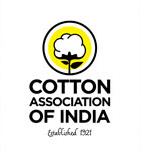Banikinkar Pattanayak
New Delhi, Jan 10
FOR the first time in 63 years, the government will restructure the Cotton Advisory Board (CAB) by segregating the consulatation process from finalizing estimates of the fibre’s production, consumption and exportable surplus, sources said on Thursday.
This will effectively keep private players out of the final process of firming up the crucial estimates. While restructured CAB would comprise officials of textile & agriculture ministries and state governments, the consulatative body would be represented mainly by executives from the textile industry and traders, said sources.
Prior to the decision, CAB was one larger body, consisting of government officials and representatives of the textile industry, traders’ body and growers, involved in the process of providing estimates on production, consumption, stocks and exportable surplus of cotton. Both CAB and consultative body will be headed by the textile commissioner.
"The CAB, through a consultative process, will seek inputs from the cotton textiles mill industry, cotton growers and traders. The consultative committee shall meet prior to the formal meeting of the CAB. The recommendations of the consultative committee shall be considered by CAB (before firming up the final estimates),” said a senior government official. While the industry body can submit recommendations and forecasts on cotton trade, output and demand, the final cotton balance sheet will be worked out by the body represented by government officials, the sources said.
The reconstituted CAB will be effective for two years through December 31, 2014, they added.
The decision came amid increased tension at CAB meetings, where traders’ body has frequently confronted the government officials on various projections especially when there is huge export demand, although it hardly does any data collection to be able to firm up an accurate estimate, another source said. Significantly, the output estimate of cotton is important, as the higher is the harvest, the greater would be the export quota. However, traders allege latest move is an attempt by the government to reduce the importance of their suggestions.
“Considering the sensitivity involved in the firming up of the cotton balance sheet, there is a need to segregate consultation process from the number-crunching process. It would expedite the process of giving the correct and fair estimates, but isn't aimed at undermining anyone's role,” said a senior government official. Cotton is the only commodity where the industry and traders have a say. The production estimates of all other farm items are solely firmed up by the government.
(Source: Financial Express)
